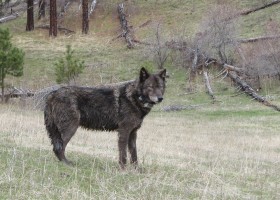By Bob Ferris

When I was in graduate school we learned an awful lot in our core areas of expertise. But we also spent time talking about scientific ethics and acceptable practices. Part of those discussions dealt with issues relating to research and publications such as why a certain person should be identified as a primary author or how study animals should be treated during the course of a project and after. The ethics and process trainings were not always formalized in a classical sense, but by the end of my graduate school tenures I had been exposed either though instruction or example to a broad spectrum scenarios that I and others assimilated into our own personal scientific ethos.
This grounding has served me well over the years. It has made me speak up when I felt that was required and it has also made me hold my tongue and not speak when I lacked the necessary grounding or experience to comment or serve as a credible voice in a particular debate. And where I have not had the academic credentials to speak—climate science, economics, and energy policy, for examples—I have made damned sure that my comments were directed by accepted peer-reviewed research or were vetted by acknowledged experts in the field prior to my speaking out on the topics. In short, I take time to do my homework and am always very upfront about my credentials and my sources. And I have observed others in similar situations doing the same—this is extremely important if we are to retain our credibility as voices for science.
Because of this I am sorely disappointed by those with science backgrounds allowing themselves to be characterized as “experts” in areas where they have little or scant experience. We have certainly seen this in the climate change “debates” and it also seems to be a key component in the wolf discussions. This comes to my mind because I recently read a headline that went: Wolf Expert to Speak Thursday. Doing a little research we find that the “wolf expert” is actually trained in hydrology—an expert on water not wolves.
Mission of the Oregon Cattlemen’s Association’s Wolf Task Force: This committee will work to defend rancher’s rights to protect their livestock from wolf predation and require full compensation to ranchers when wolf predation on livestock does occur.
Now the person in question is certainly not responsible for the above headline, but he is not absolutely faultless in the matter because he has spent a lot of time and energy publicly talking about wolves as part of his role with the Oregon Cattlemen’s Association’s task force on wolves. And he like others who are being trotted out by anti-wolf forces such as Jim Beers or even Val Geist should take some time to think back to their own ethical grounding and back away from what should be considered an exercise in un-informed advocacy leveraged by the false specter of credentials.




Bob, Like I stated on FB, just because you or others use and believe in any given research document as fact, isn't fact to the other side of the world….. There are a bunch of us (rednecks) that live the life of farmers or ranchers. You and others come to our town wearing pro-wolf eco-badges, and you and their ideas aren't welcome or proven to be right. Another situation that you and Conservation Northwest choose not to answer, If the raparian areas are so important in our lives, then what are you doing about the West Coast of Washington Oregon and California… Humans have screwed that up so bad, it will never to be repaired. Rivers, lakes and salt water. alike. Cattle can't screw up anything as bad as humans have done.
Don, Research by its very nature tries to tease out facts even when they are counter-intuitive. Those tested research findings should not, however, be confused with or felt that they are equivalent to opinions–they are different beasts all together. In terms of riparian areas, what you say is absolutely true and that is why we work on riparian systems from the source of rivers in the mountains to where they enter the sea and beyond–point, non-point and atmospheric forms of pollution all need to be dealt with including those from dairy and beef cattle. The good news is that nature tends to be resilient when allowed. It is mistake to think about wildlife biologists as aliens entering rural situations not understanding the context. My first jobs as a child was working on a ranch and it–in part–started me on my pathway just as sure as my early passions for hunting and fishing. As I have stated repeatedly here and elsewhere, rural people have a lot to offer in terms of knowledge and familiarity with cycles and landscapes. The tricky part comes when it is time to interpret what has or is being seen, formal study and research makes people more cautious about accepting simple solutions in a complicated world with multiple factors and a variety of asynchronous biological and physical cycles. And I never buy the old they are doing it worse as an excuse not to be responsible for your own actions or the actions of your community. It is a poor ethic to live by.
Bob Ferris